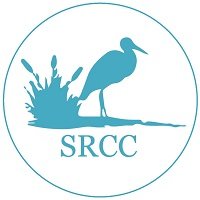Good News for the Horseshoe Crabs of Shark River
The Horseshoe crabs that visit Shark River every spring are veritable living fossils, having inhabited the Atlantic Coast for over 300 million years. Yet they have struggled in recent decades due to human activity like over-harvesting for their use as bait and for blood. Recently, a US healthcare policy change has brought about some welcome news for Horseshoe crabs, aiming to significantly reduce the threat to the local population.
Each spring for millions of years, these crabs have sought the sandy beaches of the Atlantic coast, gathering in droves to mate. Migratory shorebirds, most notably the robin-sized Red Knot, have evolved to migrate in time with the crabs' spawning cycle. The horseshoe crab eggs give the birds the energy needed to fly north to breed in the Arctic. In the 1960s, scientists discovered that the copper-based blue blood in horseshoe crabs would clot on contact with bacterial toxins. Vaccines, drugs, and medical devices must be sterile before they're given, so this blood was the perfect candidate to test all manner of medical products and components. As harvesting grew in the past 40 plus years, the Red Knot populations have plummeted to a staggering degree of about 94%, prompting the Federal Government to designate the Red Knot as threatened.
A synthetic alternative was invented and later approved in Europe as an equivalent to the blood in question, seeing the need for blood a thing of the past. But at the same time in the U.S., the blood harvest did not shrink, but rather grew notably. Five companies along the East Coast — with operations in a few coastal states, including New Jersey, is verified to have drained over 700,000 crabs as recently as 2021. About 80 million tests are performed each year around the world using the blood-derived compound. However, recently, the Physicians Committee for Responsible Medicine, a nonprofit working for the practice of effective, efficient, and ethical medical research, testing, and training, announced a significant policy change by the U.S. Pharmacopeia (the organization responsible for setting national safety standards used in medical product manufacturing).
This development promises to greatly benefit horseshoe crabs, as it is a substitute that can overtake use of their much sought after blood, therefore reducing the economic incentive for their continued harvest. The policy change marks a pivotal shift toward using lab-produced, non-animal alternatives. These methods are more humane and offer greater consistency and reliability compared to the traditional blood-based tests. For years, the Physicians Committee had advocated for this policy change, conducting round-tables, workshops, and training sessions, and engaging with leaders in Congress like U.S. Rep. Frank Pallone (D-NJ) and Sen. Cory Booker (D-NJ), for the adoption of non-animal testing methods.
This is a testament to the hard work of scientists, advocates, policymakers, and politicians that have worked together to help support threatened populations of both Horseshoe crabs and Red Knots. This work serves as an inspiration to continue our work to support habitat protection and restoration, and to further protect our most precious natural resources in Shark River.
For more Information about this situation read these articles:
Biomedical labs bleed horseshoe crabs for vaccines with little accountability : NPR
The Horseshoe Crab is a Fundemental Part fo the Deleware Bay's Ecology
Did You Know That Horseshoe Crab's Blue Blood Is Used In Vaccine Development (msn.com)
